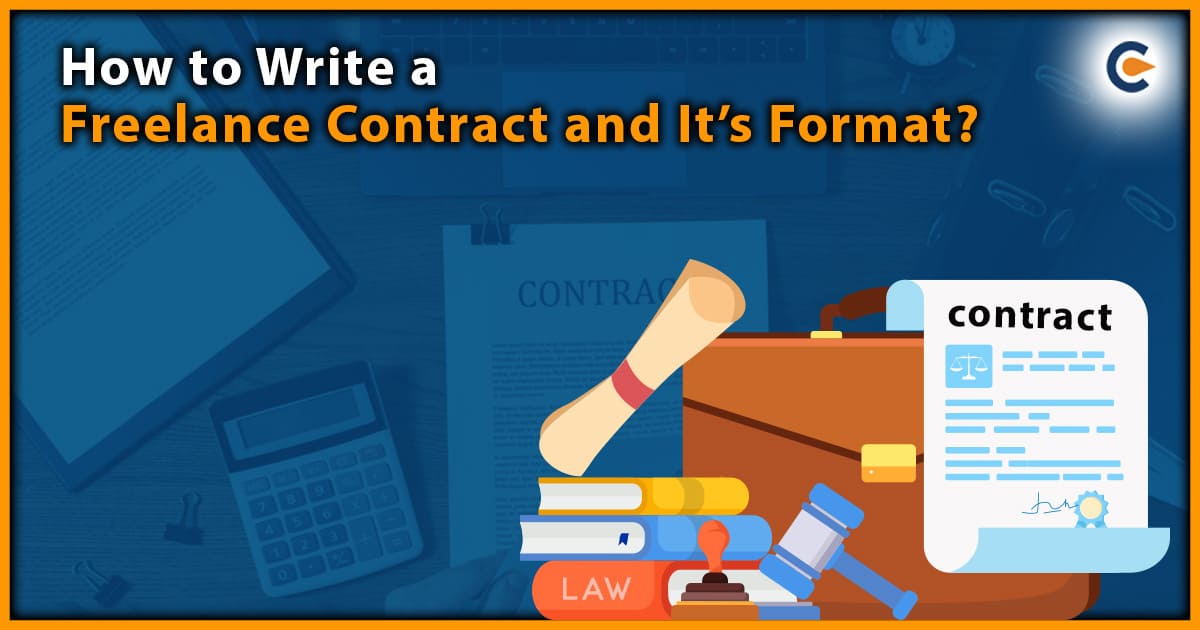As a freelancer, it’s important to have a contract agreement with your clients to ensure that both parties are clear on the terms of the project. A contract agreement serves as a legal binding document that outlines the scope of work, payment terms, and project timelines. In this blog, we’ll discuss the steps involved in writing a Freelance Contract and its format.
Freelance Contracts
Freelance contracts are legal agreements that establish a working relationship between a freelancer and a client. They outline the terms and conditions of the project, such as the scope of work, payment terms, timelines, intellectual property rights, and confidentiality requirements. Freelance contracts are essential for several reasons:
- Protection of Both Parties: A freelance contract protects both the freelancer and the client by outlining their respective rights and obligations. It sets clear expectations and helps to prevent misunderstandings or disputes that may arise during the project.
- Payment Security: A freelance contract ensures that the freelancer is paid for the work they have completed. It outlines the payment terms and specifies when payment is due, preventing any delays or non-payment issues.
- Project Clarity: Freelance contracts provide clarity on the scope of work, including deliverables, deadlines, and revisions. This ensures that both parties have a clear understanding of what is expected, reducing the risk of miscommunication or scope creep.
- Intellectual Property Rights: Freelance contracts outline the ownership of any intellectual property created during the project. This is important for freelancers who may create original content or designs and want to protect their work from being used without permission.
- Legal Protection: Freelance contracts are legally binding documents that can be used in court to enforce the terms of the agreement. This provides legal protection for both parties in the event of a dispute.
In summary, freelance contracts are important for protecting the interests of both the freelancer and the client. They provide clarity and protection, ensuring a successful working relationship and preventing disputes that can be costly and time-consuming. Freelancers should always use contracts to protect themselves and their work, and clients should expect to sign a contract before commencing work with a freelancer.
Steps To Write a Freelance Contract
- Identify the Parties Involved: The first step in writing a freelance contract agreement is to identify the parties involved in the project. This includes the client and the freelancer. Be sure to include the full legal names and addresses of both parties.
- Define the Scope of Work: The next step is to define the scope of work. This includes the details of the project, such as the deliverables, deadlines, and milestones. Be as specific as possible to avoid any confusion or misunderstandings. It’s also important to include any revisions or changes that may occur during the project.
- Payment Terms: The payment terms are an important part of the contract agreement. This includes the payment amount, payment schedule, and any penalties or fees for late payments. Be sure to specify the payment method, such as bank transfer or PayPal.
- Confidentiality and Non-Disclosure: If the project involves sensitive or confidential information, it’s important to include a confidentiality and non-disclosure clause in the contract agreement. This clause ensures that the freelancer will not share any confidential information with third parties.
- Termination Clause: The termination clause outlines the circumstances under which the contract agreement can be terminated by either party. This includes any notice periods required and any penalties for early termination.
- Intellectual Property Rights: If the project involves creating any intellectual property, such as a logo or design, it’s important to specify who owns the rights to the intellectual property. This includes any licensing or usage rights.
Format of a Freelance Contract Agreement
The Freelance Contract and it’s format should be clear and concise. Use simple language and avoid any legal jargon that may confuse the parties involved. Here is a basic format for a freelance contract agreement:
- Introduction: This section should include the names and addresses of the parties involved, the project name, and the date the contract agreement was signed.
- Scope of Work: This section should include the details of the project, such as the deliverables, deadlines, and milestones.
- Payment Terms: This section should include the payment amount, payment schedule, and any penalties or fees for late payments.
- Confidentiality and Non-Disclosure: This section should outline the confidentiality and non-disclosure requirements of the project.
- Termination Clause: This section should outline the circumstances under which the contract agreement can be terminated by either party.
- Intellectual Property Rights: This section should specify who owns the rights to any intellectual property created during the project.
- Signatures: Both parties should sign and date the contract agreement to make it legally binding.
A Freelance Contract Needs To Be Well-Written For Several Reasons:
- Clarity: A well-written freelance contract clearly outlines the scope of work, payment terms, timelines, and other important details. This ensures that both the freelancer and the client have a clear understanding of the project requirements and what is expected of them.
- Legal Protection: A well-written freelance contract is a legally binding document that can be used in court to enforce the terms of the agreement. It provides legal protection for both parties in the event of a dispute.
- Payment Security: A well-written freelance contract outlines the payment terms and schedule, ensuring that the freelancer is paid for the work they have completed.
- Intellectual Property Rights: A well-written freelance contract outlines the ownership of any intellectual property created during the project. This is important for freelancers who may create original content or designs and want to protect their work from being used without permission.
- Professionalism: A well-written freelance contract demonstrates professionalism and shows that both parties take the working relationship seriously. It helps to establish trust and creates a positive working environment.
In summary, a well-written freelance contract is essential for protecting the interests of both the freelancer and the client. It provides clarity, legal protection, payment security, and intellectual property rights, and demonstrates professionalism. A poorly written contract can result in misunderstandings, disputes, and a breakdown of the working relationship. Freelancers should take the time to write effective contracts that protect their interests, and clients should expect to sign a contract before commencing work with a freelancer.
Conclusion
In conclusion, a Freelance Contract and its format is essential to ensure a successful project and protect the interests of both parties involved. By following these steps and using a clear and concise format, you can create a contract agreement that is easy to understand and enforceable in a court of law.
Read Our Article: How Are MSA And Intellectual Property Connected?











